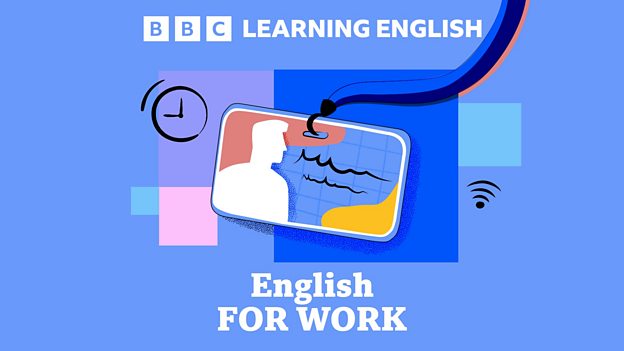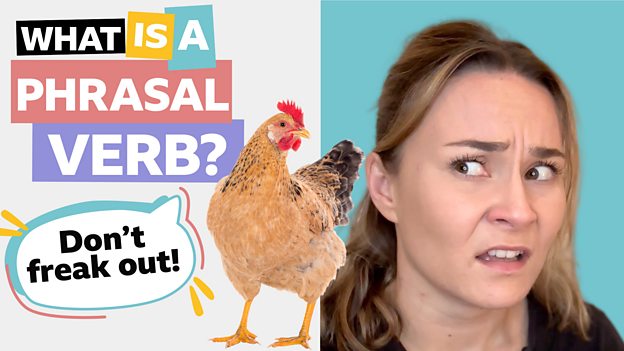6 Minute English
Intermediate level
Keeping kids off smartphones
Episode 240912 / 12 Sep 2024

_____________________________________________________________________________________________________
Download a free 6 Minute English worksheet!
Download a free transcript!
Learn more about technology
______________________________________________________________________________________________________
Try more episodes of 6 Minute English:
______________________________________________________________________________________________________
Introduction
Can you stop your child having a phone if all their friends have one? Neil and Beth teach you some useful vocabulary.
This week's question
According to a recent survey, how long does the average American 11-to-14-year-old spend looking at a screen every day? Is it:
a) five hours?
b) seven hours? or,
c) nine hours?
Listen to the programme to hear the answer.
Vocabulary
at the end of the day
after all the relevant facts have been considered
bestie
(slang) best friend
(be) torn between
find it difficult to choose between two possibilities, leaving you feeling anxious or worried
nightmare
a very unpleasant experience, situation or event
go viral
spread quickly and widely on the internet through social media and email
right in front of your eyes
used to emphasise that something surprising or unusual happened directly before you
TRANSCRIPT
Note: This is not a word-for-word transcript.
Neil
Hello. This is 6 Minute English, from BBC Learning English. I'm Neil.
Beth
And I'm Beth.
Neil
Can I ask you something, Beth…? Beth? Hello, Beth? Are you listening?
Beth
Oh, sorry, Neil! I was er… checking my Instagram, and ugh… Facebook…and, just sending this email… done! Now, what did you want?
Neil
Well, I wanted to ask if you're getting addicted to your smartphone, but clearly the answer is 'yes'!
Beth
Actually, Neil, I am worried about my smartphone use, and it's not just me. Concerns are growing about the negative effect smartphones are having on adults and, even more, on children.
Neil
Studies show that girls who spend more time on social media are more likely to be anxious or depressed, and smartphones have also been linked to delayed brain development and poor sleep.
Beth
Even so, around 60% of British eight-to-eleven-year-olds have a smartphone. So, in this programme, we'll be asking: are kids better off without a phone? And, of course, we'll be learning some useful new vocabulary too.
Neil
But first, put your phone away, Beth, because I have a question for you. The US has one of the highest levels of smartphone use, but according to a recent survey, how long does the average American 11-to-14-year-old spend looking at a screen every day? Is it:
a) five hours?
b) seven hours? or,
c) nine hours?
Beth
I'll guess American teens spend five hours a day on screens.
Neil
OK, Beth, I'll reveal the answer later in the programme. BBC journalist, Myra Anubi, has a nine-year-old daughter who desperately wants her own phone. But Myra isn't convinced, as she explained to BBC World Service programme, 'People Fixing the World':
Myra Anubi
I'm worried about how much time she'll spend on her own device and what she might even see there. I mean, she's only nine at the end of the day. But at the same time, I don't want her to feel left out because some of her friends already have smartphones, and there's a chance that she'll miss out on play dates or kids' trends, cat videos or online chats with her besties. So, I'm torn between wanting her to be in our world, and also letting her be in her own mini world with her friends.
Beth
Myra is worried about her daughter, and says, "at the end of the day, she's only nine". Myra uses the phrase, at the end of the day, to mean after everything is considered.
Neil
Myra's daughter wants to chat with her besties – her best friends. But Myra worries she'll get hooked on social media, see harmful content, or spend too long online. Myra is torn between letting her daughter get a phone and not. If you're torn between two things, you can't decide between two possibilities, leaving you feeling anxious.
Beth
Parents like Myra are having to make an impossible choice – either give their children potentially harmful devices, or risk alienating them from their friends who do have smartphones.
Neil
In February 2024, mums Daisy Greenwell and Clare Fernyhough, started a WhatsApp group encouraging parents to not give their child a smartphone until the age of 14, with no social media access until 16. Soon, the phone-free group of families grew into a movement, 'Smartphone Free Childhood'. Here, mum, Daisy Greenwell, explains more to BBC World Service's, 'People Fixing the World':
Daisy Greenwell
Everyone I spoke to said, 'Yes, it's a nightmare getting your child a phone, but you've got no choice. You have to because everyone else is doing it. You can't leave them on their own'. So, Clare and I decided to start a WhatsApp group to support each other, and I posted about it on social media, and it went viral. The group is full so we encourage people, start one in your region, in your county, and they sprung up all over the country right in front of our eyes. It was amazing! And now there's over 100,000 people in the UK who are in our community.
Beth
At the start, Daisy says it was a nightmare - a very unpleasant situation. Everyone else's kids had a phone, and Daisy didn't want her children to feel left out. But soon, more families got involved, and the group went viral, it spread quickly and widely on the internet and social media.
Neil
Within months, new groups started up across Britain, right in front of Daisy's eyes. If you say something happens right in front of your eyes, you are emphasising that something surprising or unusual happened directly before you.
Beth
The Smartphone Free Childhood campaign has grown rapidly in schools, and there are now groups in 18 countries around the world, offering kids a circle of friends to play and chat with in the old-fashioned way: face-to-face. OK, why don't you reveal the answer to your question, Neil?
Neil
Yes, I asked how long the average American teenager spends looking at a screen, and you guessed five hours a day, which was… the wrong answer, I'm afraid, Beth. It's actually even longer, around nine hours a day spent on screens. OK, let's recap the vocabulary we've learned in this programme starting with the phrase, at the end of the day, meaning after all the relevant facts have been considered.
Beth
Your bestie is slang for your best friend.
Neil
Someone who's torn between two things finds it difficult to choose between them, making them feel anxious.
Beth
A nightmare is a very unpleasant experience or event.
Neil
If a video or story goes viral, it spreads quickly on the internet through social media and email.
Beth
And finally, if you say something happened right in front of your eyes, you are emphasising that something surprising or unusual happened directly before you. Once again, our six minutes are up. Goodbye for now!
Neil
Bye!
Latest 6 Minute English
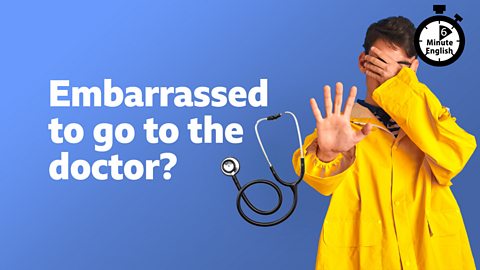
Embarrassed to go to the doctor?
Episode 241226 / 26 Dec 2024
Have you ever been embarrassed to go to the doctor?
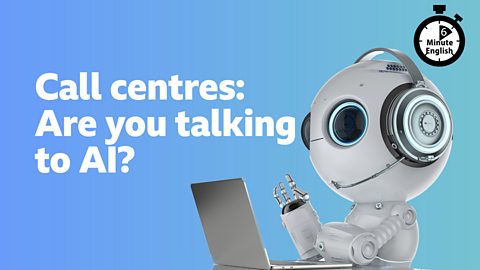
Call centres: Are you talking to AI?
Episode 241219 / 19 Dec 2024
Have you ever phoned up a company and had your call held in a queue? Could AI make this less painful?

Making 'mum friends'
Episode 241212 / 12 Dec 2024
Is making new ‘mum friends’ the positive experience it’s often described as?
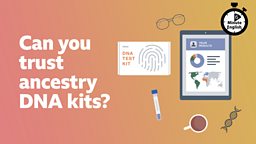
Can you trust ancestry DNA kits?
Episode 241205 / 05 Dec 2024
Are DNA ancestry tests a reliable way to trace your ancestry?
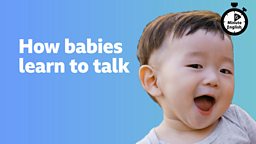
How babies learn to talk
Episode 241128 / 28 Nov 2024
What do babies need to learn to do to be able to talk?
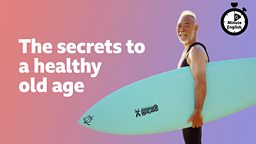

The bond between sisters
Episode 241114 / 14 Nov 2024
Are the stereotypes about older and younger sisters true?


Why you need a good night's sleep
Episode 241031 / 31 Oct 2024
Why is it so important to get a good night's sleep?

Divorce: Why does it happen?
Episode 241024 / 24 Oct 2024
How is divorce talked about in different countries?

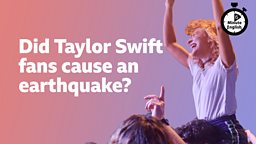
Did Taylor Swift fans cause an earthquake?
Episode 241010 / 10 Oct 2024
Did Taylor Swift move the Earth?


Learning a new food culture
Episode 240926 / 26 Sep 2024
Would you find it different to adapt to a new food culture?

Saving water in the driest place on Earth
Episode 240919 / 19 Sep 2024
How do farmers in the driest place on Earth manage to grow crops? With this solution!
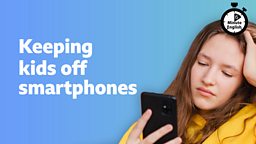
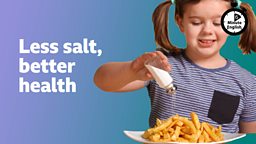

Chocolate: Meet a real Willy Wonka
Episode 240829 / 29 Aug 2024
Would you like to be a chocolate maker, like Roald Dahl's Willy Wonka?

Why we love dumplings
Episode 240822 / 22 Aug 2024
Warning! This episode might make you very hungry...
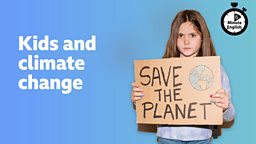
Kids and climate change
Episode 240815 / 15 Aug 2024
What are young people's thoughts on climate change?


The science of falling in love
Episode 240801 / 01 Aug 2024
What's really happening in our brain when we fall in love?
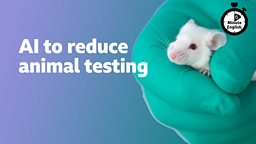
AI to reduce animal testing
Episode 240718 / 18 Jul 2024
Could AI reduce the need for animal testing?

Why read books, not screens?
Episode 240718 / 25 Jul 2024
Why is it better to read from a book than a screen?
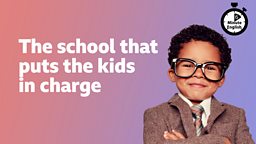
The school that puts the kids in charge
Episode 240711 / 11 Jul 2024
What happens when you put the kids in charge of the school?

What can we learn from toddlers?
Episode 240704 / 04 Jul 2024
Learn to speak to yourself in the way that toddlers do!
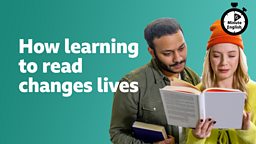
How learning to read changes lives
Episode 240627 / 27 Jun 2024
How can literacy change people's lives?

Building a better world with wood?
Episode 240620 / 20 Jun 2024
How can buildings made from wood help our mental health?
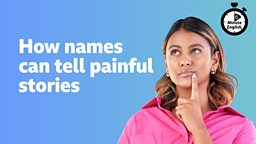
How names can tell painful stories
Episode 240613 / 13 Jun 2024
Could our name have painful baggage?

E-rickshaws driving away pollution
Episode 240606 / 06 Jun 2024
Could E-rickshaws give us cleaner air?




Bitter food, better health?
Episode 240509 / 09 May 2024
Could bitter foods be better for your health?
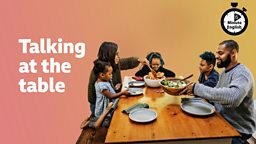






Disability in music and theatre
Episode 240321 / 21 Mar 2024
Learn about the people who are making it easier for disabled musicians and music fans to perform and see live music


Sewing to fight period poverty
Episode 240307 / 07 Mar 2024
Period poverty affects over 500 million people worldwide. How can a volunteer project help?

Plastic waste eaten by enzymes
Episode 240229 / 29 Feb 2024
Plastics can be difficult to recycle. Could a recently discovered enzyme help?
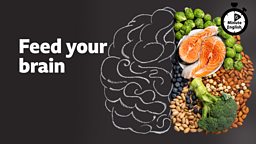
Feed your brain
Episode 240222 / 22 Feb 2024
Food is fuel for our brains. So, what should we be eating?

Food for new mums
Episode 240215 / 15 Feb 2024
Having a baby is exhausting! What do mothers need to eat after giving birth?
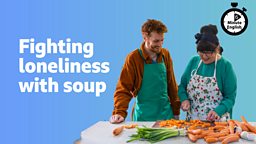
Fighting loneliness with soup
Episode 240208 / 08 Feb 2024
Hear how a project in the Netherlands is helping in the fight against loneliness

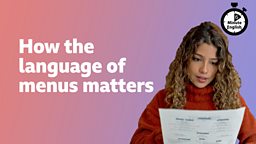
How the language of menus matters
Episode 240125 / 25 Jan 2024
Why is the language used on menus important?





